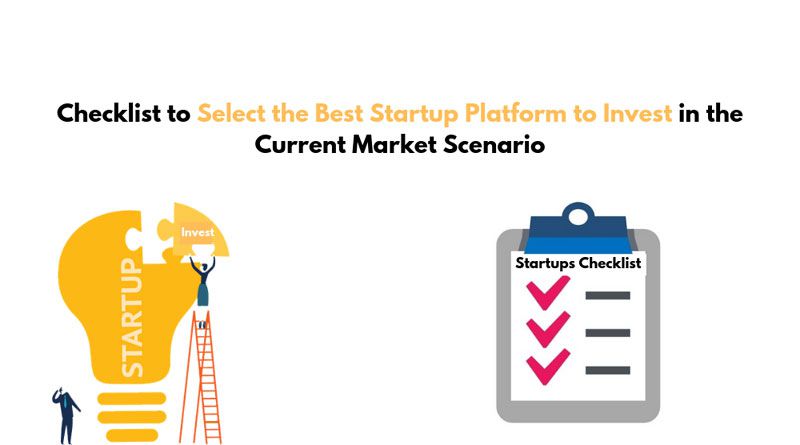For the last 10 years, there is a deluge of startups in different areas with most startups being focussed on technology and the internet. When you see now, only 1 in 10 startups that started five years back is still functioning. Closure of a startup can have many reasons, but the predominant reason according to statistics is that the founders pick the wrong startup to start with.
Many think that we should start a startup business in the area where our interest and passion lies. Doing this is good but you should not overlook other factors by giving more stress on interest and passion. So, if you are going to invest in a startup then, you can easily avoid this mistake.
By analyzing hundreds of successful startups, I have prepared a checklist which is used by their founders to select the right startup platform.
Checklist 1: Budget
While planning to start a business you would definitely have a budget and resources like buildings, office space, etc. So definitely the startup you select should be well within that budget. Select a set of startup platforms that aligns with your budget.
After finalizing the particular set of startup platforms, you can select any one of them that piques your interest.
Let me tell you the factors in budget and resources to pick the startups.
Fixed costs: Fixed costs include office space rent, misc materials/items, equipment, computers, devices, vehicles, etc. This cost differs from startup to startup. Online internet-based startups like on-demand businesses have a very low fixed cost. The cost of owning is also less in on-demand startups. So, you can select any on-demand services if you want the fixed cost to be minimum.
Variable cost: App and website fees, network fees, promotion and marketing cost, maintenance cost, production cost, service cost, etc comes under variable cost and these costs totally depend on the scale and number of users.
These two costs are the two important cost components and see if these costs of a particular startup perfectly align with your budget and resources. Fyi, there are many fixed and variable costs involved in a startup.
Checklist 2: Region and locality
There are many startups that failed even in silicon valley. A region’s language, culture, ethnic diversity, and demographics have a huge influence on a startup. Uber is the market leader in taxi booking but, it failed to make inroads into the Chinese market and is struggling in India. This is because their working model is not aligned with the local region. The same applies to every startup.
The type of startup is also a function of the region. The ride-sharing concept is not suitable in the US. The US already has well-connected roads and cheap gas. So, people don’t prefer to ride-sharing
Check your region and do market research to find what types of startups can get a grounding and also know how to construct the business operation for the locals.
Access to skilled labor, cost of living, and lifestyle can also be considered as a major factor in selecting a startup for a particular region.
Checklist 3: Current trend
Having a good understanding of the current trend gives you a better idea before selecting the right startup. While technology and internet-based startups are the trends now, you can go deeper into it to see that on-demand based startups are having increased traction in the current scenario.
Apart from it, tech startups involving Artificial intelligence, Big data analytics, Internet of Things, Cybersecurity, and Blockchain have huge potential now and many are finding ways to enter it.
On-demand startups require less initial capital and also involves less risk. On the other side, tech startups need a highly skilled workforce and high fixed costs.
Future scenario
The road for startups is not smooth and filled with a lot of challenges. Still, it will be exciting to be a part of the startup community. Stringent regulations, fundraising, scaling, and managing cash flow may be a huge roadblock for startups in the future and that should not deter you from investing in it.
The environment is not appropriate for startups in many areas. It may sound pessimistic but it will allow new entrepreneurs to explore interesting areas. Constant innovation can sustain these challenges and focus on customer experience to break away the barriers.
By seeing the future of startups you need to know that selecting the appropriate startup to invest will be a game changer and it will definitely make your path a bit effortless. So put some effort into it and I hope the above information will be of much use to you.
I’m Divya working at Uplogic Technologies Pvt Ltd, Uplogic technologies as a leading producer of mobile app and web app solutions in the market. We serve many entrepreneurs in their business globally. Uplogic’s primary focus is developing android apps, iPhone/iPad apps, and cross-platform apps for on-demand business models like uber clone solution, online food delivery, taxi dispatching solutions, and many more services. Our top selling products are SpotnRides and SpotnEats, which are related to the on-demand industry. The Unique selling proposition of ours is providing free after-sale support and customization for some time on all our projects. Our satisfied clientele base is a result of the work by our dedicated development team and our commitment towards technology.

